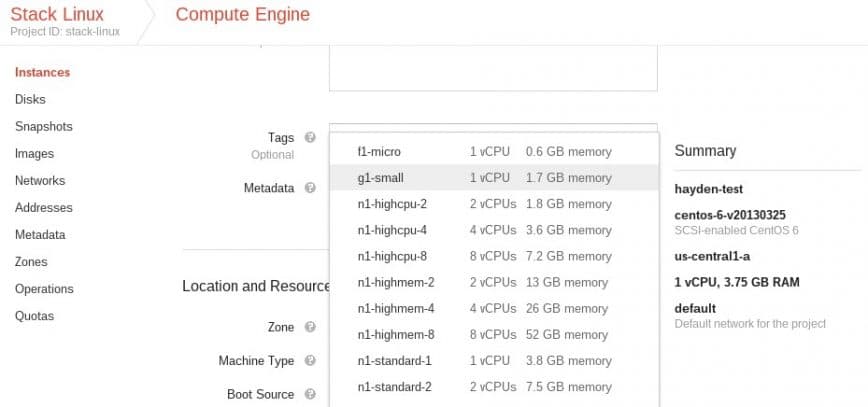Google Compute Engine VS Amazon EC2. Time to Switch?
Google’s cloud platform is increasingly being compared to Amazon Web Services (AWS). However, they have not been able to offer anything that threatens to compete with Amazon’s EC2… till now!
Last month, Google publicly launched the Google Compute Engine. Their micro instance starts at less than 2 cents per hour. So you are probably wondering how good is Google Compute Engine? Is it better than AWS EC2? Should you make the switch?
So far from my tests its pretty good, but also the service is still very young and as such feels that way, new and unfinished. The formula also appears a lot like they cut and pasted the format of AWS and just re-branded it. Yes, thats to be expected, but I don’t think Amazon can feel threatened until Google actually adds some significant and unique innovations, rather than a sort of clone service that is only slightly cheaper for the most part. Remember, this was how Gmail nuked Hotmail, unlimited storage (with the GB ticker growing daily) and a swarm of unique and innovative features/plugins for Gmail all easily connectable to nearly any and everything.

Some features that Google Compute Engine
- Sub-hour billing: increments down to one minute with a minimum of 10 minutes. This will be useful if Google sets up scaling (# of instances or upsizing) based on server load/ demand. Similar to Amazon’s CloudWatch and Elastic Beanstalk. (By the minute billing is something Amazon can implement if truly beneficial)
- Smaller available instance types. (Something AWS covers with their instance types)
- Google’s SOLID networking experience. (How many Google.com outages can you remember? If Google search goes offline, many people think its the apocalypse!)
- Persistent disk storage. (AWS offers persistent EBS storage)
- Similar to AWS they also offer premium (paid) support.
Basically, if you already use Amazon’s Web Services then everything will seem extremely familiar. So kudos to Amazon, as it seems not much about their formula needs to be reinvented.
Larry Dignan Editor in Chief of ZDNet puts it nicely:
“The burden of cloud proof for enterprises will clearly rest with Google, which will have a few things to prove. Here are the hurdles Google will face challenging AWS:
- Support. AWS has been improving its customer support and has layered a bevy of options out for customers.
- Case studies. AWS has landed major enterprise case studies in major verticals. AWS is also handling more mission critical workloads.
- Partnerships. Google has promising cloud services, but will need to partner with the likes of SAP and Oracle to really meet enterprise demands. Google’s moves so far seem geared to smaller companies.
- Features. AWS has a blistering pace when it comes to launching new services. By adding things like support for virtual private networks AWS is basically telling companies that it will continually improve. Google will have to prove the same.
- A customer service ethos. Amazon revolves around the customer whether it’s e-commerce, the Kindle usage model or AWS. Google doesn’t have that experience working directly with customers. Google will have to prove itself and come up with features such as the AWS Trusted Advisor.
- Longevity. AWS has been around since 2006 and enterprises are likely to dabble with Google but may be wary of a perpetual beta reputation. Google’s enterprise cloud cred will take time to develop.
Also read: When To Use Amazon EC2 t1.Micro Instances.
So as far as Google Compute Engine VS Amazon EC2 goes, I think AWS will still be king for at least the next few years, it will take Google time to prove their worth. Also, I really think unlike many of the search giant’s vast array of non-hosting services, there’s not enough “amazing” and “OMG!” type innovation to the Google Compute Engine… yet!